When it comes to crime films, Guy Ritchie has a distinctive style. Most of them are about a group of British lads who manage to stumble into a situation that could either make them a lot of money or get a lot of them killed, but through tenacity, bravado, and the occasional odd circumstance, they manage to see their way through.
If you wanted to describe those Ritchie crime films in a word, you could call them capers. For the most part, they are sheer entertainment, and sometimes we see actors like Brad Pitt or Matthew McConaughey pal around with Ritchie and his crew. It is mostly all in good fun.

Guy Ritchie’s Wrath of Man is decidedly not a caper. It is brutal, direct, mostly absent of humor, and based on a realism that Ritchie’s other films of this nature are not. It could be the American setting that dictates the tone or Ritchie experimenting with different storytelling techniques.
However, this is a film more reminiscent of The Long Good Friday than The Lavender Hill Mob. There is a coldness to the violence and a fury that fuels its characters. Even the cinematography is less playful than Ritchie’s previous works and more intense.
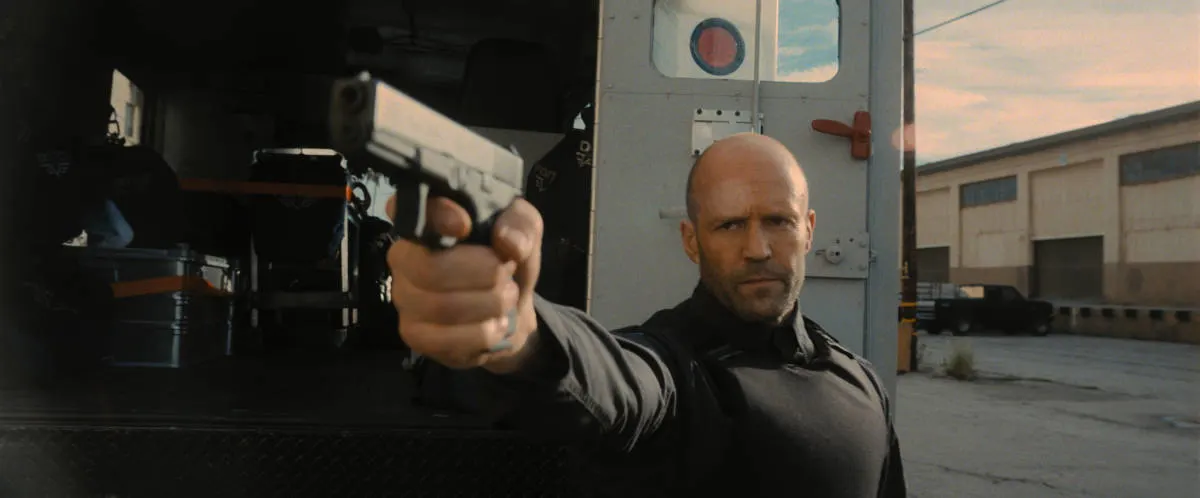
Based on the 2004 French film Le convoyeur (“Cash Truck”), Wrath of Man introduces us to H (Jason Statham), who is given that moniker by his supervisor Bullet (Holt McCallany) at the armored truck job that H was recently hired on to work. H does not talk much, and when he does, it is mostly to tell people to stay away from him.
He is unfriendly and coarse, but one day, when robbers hold up the armored truck that he and Bullet are working in, H dispatches the robbers with cold brutality and efficiency. It quickly becomes obvious to everyone at the armored truck company that H has a past and a goal, skills that exceed his pay grade, and a score to settle.
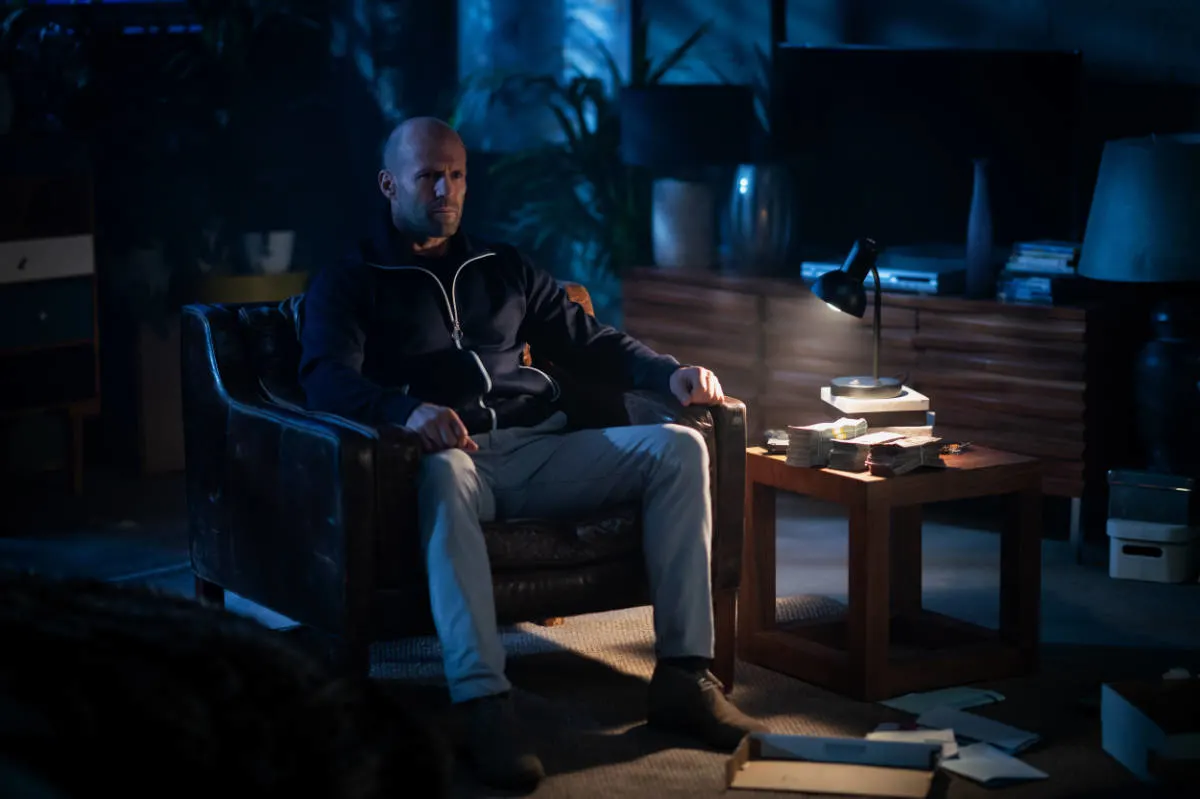
Meanwhile, a group of former soldiers led by Jackson (Jeffrey Donovan) becomes restless in civilian life, and decides that the skills they acquired in war could be used to take down scores. They work with tactical precision, except at times Jackson must rein in Jan (Scott Eastwood), one of the younger soldiers in his crew, a hothead and eager to prove himself.
It seems inevitable that Jackson’s crew and H will collide in an explosion of violence. However, there is a shared past between them and a fierce vengeance to be paid in blood.
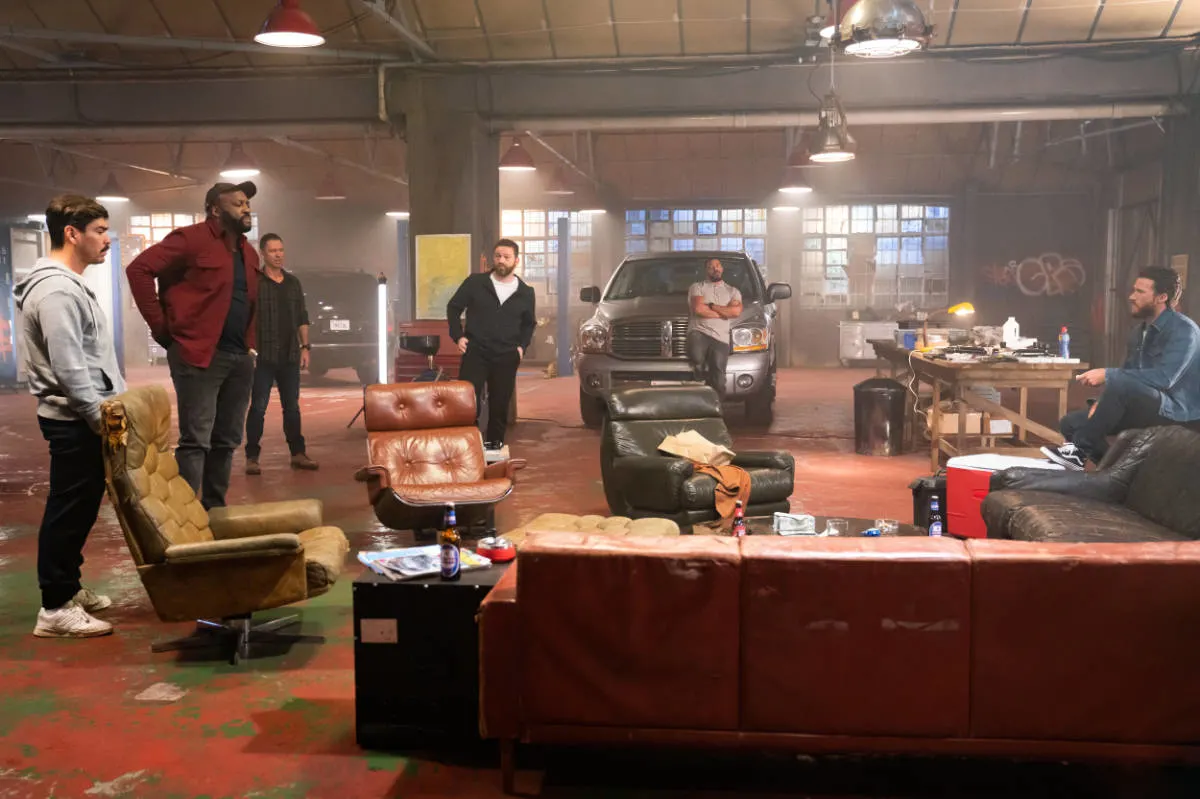
This is a familiar subject matter for Guy Ritchie, but it is in the tone that Wrath of Man differs from his other crime films. Like his 2000 film Snatch (also starring Statham), Ritchie plays with the flow of time and how everyone’s backstory intersects with everyone else, but unlike Snatch, these intersect aren’t played for laughs but instead used for an emotional impact and slow reveals of plot and character.
There is a realism to Wrath of Man, and at times that realism overwhelms the film. Statham’s H is clearly a man on a mission, cold and ruthless in his methodology, but there is reason for it. How Wrath of Man reveals H’s past is one of the film’s strongest sections, and we, the audience, look forward to seeing how all of this pays off.
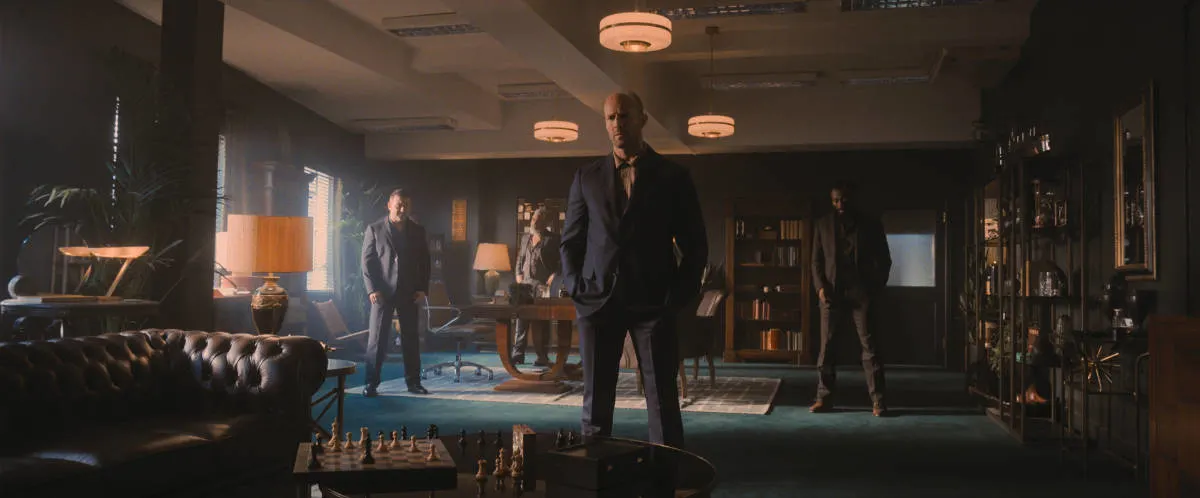
The first two acts of Wrath of Man are terrific, and they are a showcase for Ritchie’s abilities. In fact, it is some of Ritchie’s best work as a filmmaker. He establishes tone; he invests his audience in his characters, gives the proceedings the appropriate weight, and sets the stakes for H and the crew’s oncoming conflict.
As the stories intertwine and Wrath of Man reveals more about H and the heist crew, the audience invests in the characters, so when the third act hits, we are ready to see how this unstoppable force will collide with this immovable object.

But the tone and the realism that Ritchie establishes in the first two acts betray him here. We are used to seeing Statham enter a room and demolish his opposition with skill and ease, so much so that we come to expect it. Ritchie plays against those expectations in a way that feels anti-climactic.
Throughout the final heist, Ritchie cuts back and forth in time, undercutting its effectiveness. It feels like the established realism holds both Ritchie and Statham back; they seem unable to cut loose with the material because they are trapped by the tone and the rules that the first two acts, strong as they are, have already set up.
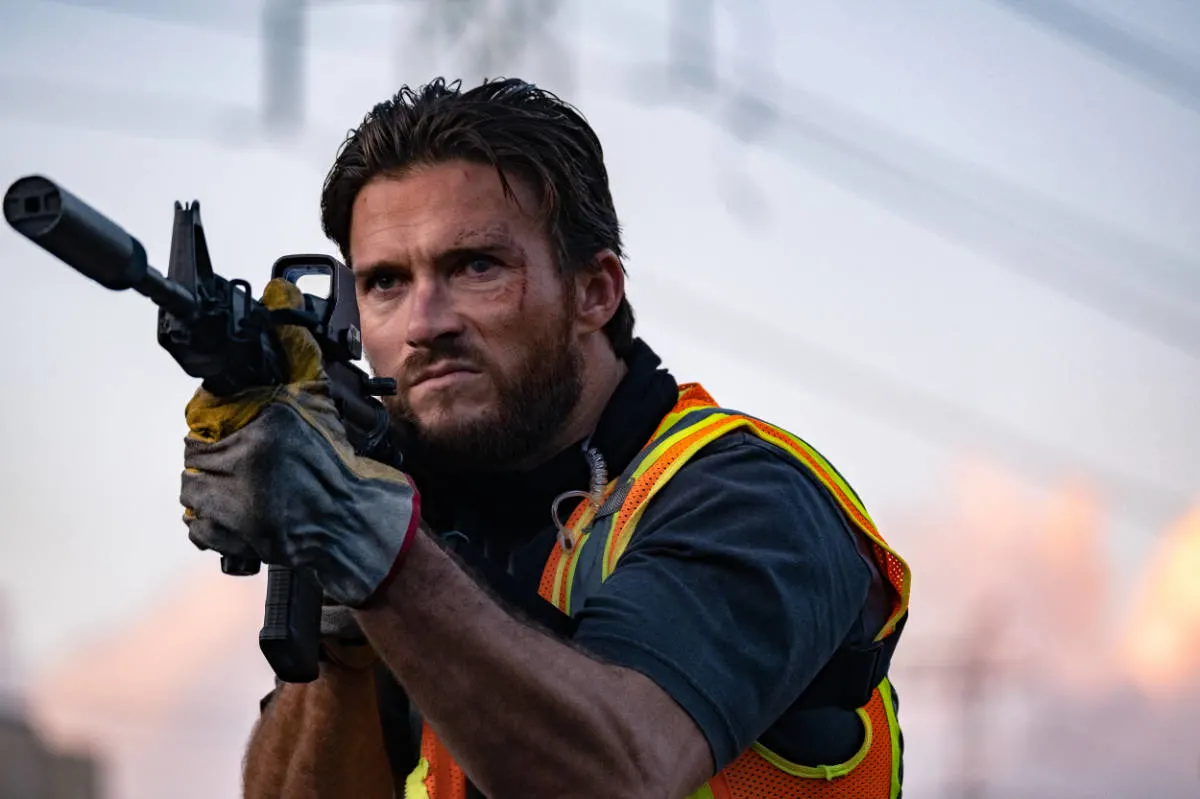
Ritchie and Statham want to subvert expectations, but instead, they fail to live up to them. It is a misstep that derails the film, and at a crucial moment, so that Wrath of Man is unable to recover. It is a shame because Wrath of Man bursts out of the gate with a strength and ferocity that we have not seen from Guy Ritchie in a while. The wrath runs out.
WRATH OF MAN REVIEW SCORE: 6.5/10
MGM will release Guy Ritchie’s Wrath of Man in theaters on May 7, 2021. Rated R, the film stars Jason Statham, Holt McCallany, Jeffrey Donovan, Josh Hartnett, Laz Alonzo, Raúl Castillo, Deobia Oparei, Eddie Marsan, and Scott Eastwood.
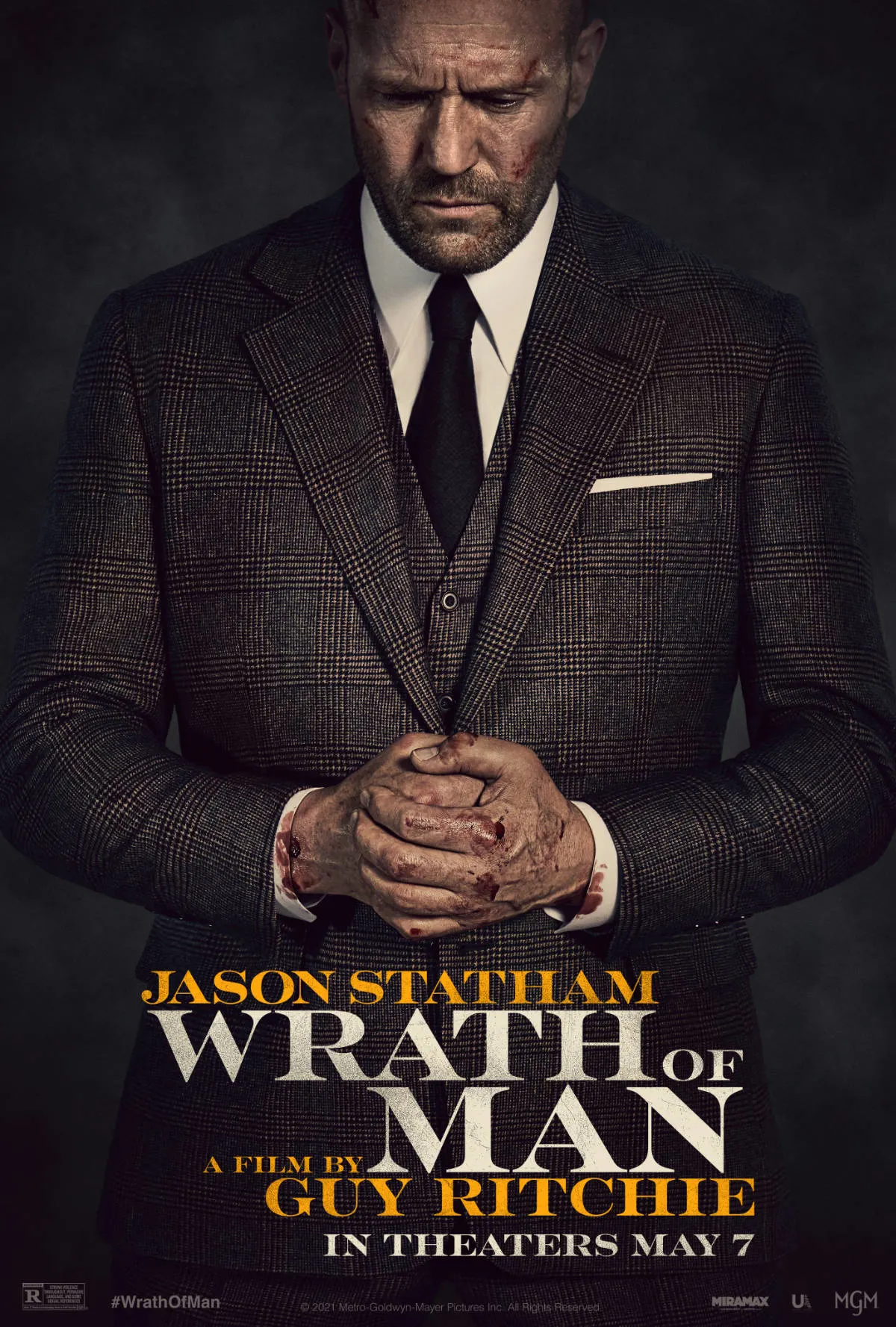

Alan Cerny has been writing about film for more than 20 years for such sites as Ain’t It Cool News, CHUD, Birth Movies Death, and ComingSoon. He has been a member of the Houston Film Critics Society since 2011. STAR WARS biased. Steven Spielberg once called Alan a “very good writer,” and Alan has the signed letter to prove it, so it must be true.